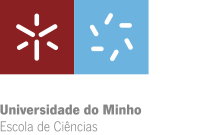When did the exchange program start?
I arrived on January 31st (a month ago), one day before welcome day. I will stay during the semester, until June.
What motivated you to participate in the Erasmus Program?
I wanted to discover a new culture with incredible landscapes. I really want to visit the Peneda-Gerês National Park, but it's not easy to find transport.
Initially, I chose the University of Minho because of the subjects it offered, but then I realized that I could not validate the semester if I chose these subjects, as they were not within my area. I ended up choosing undergraduate courses in Applied Biology and I am very satisfied with my choice. I am also very happy to have the opportunity to carry out a project similar to a laboratory internship.
What did you expect to find in our country, at the academy level?
I hoped to find some different subjects from my country, but within the same field of study, to expand my knowledge. I've already met other colleagues, also on mobility, and we agreed to share study materials as soon as the semester ends. It will be a way for us to access content from courses that we do not attend. It will also serve to share and learn about other experiences of those who are also in this mobility program. Furthermore, I hope this experience will help me improve my English.
Did you feel many differences in teaching between our university and yours?
I'm not exactly at a "university", but at an Engineering School. Here, I have much more free time than in France, which can be a challenge as it is easy to fall into the “trap” of putting off tasks. There are always things to do, but the pace is completely different and so I find it difficult to adapt. Having free time is an advantage for translating and better understanding what is not immediately understood, but maintaining concentration and organizing study time can be complicated. Finding a balance between activities and studying has been a big challenge.
There are also working materials that I didn't know about before, like Perusall. Something that really surprised me was the PL (Laboratory Practices). Here, there are four students in the laboratory, which I consider a lot. In France, there are two of us at most, with the exception of the Biomaterials discipline, where there are more projects. We have more equipment available for manipulation and we don't need to wait as long for colleagues to move forward with experiments. Sure, sometimes you have to wait, but not most of the time. Furthermore, PLs are regular, taking place once a week, whereas, in France, we only have a few days or half-days reserved in the schedule for laboratory practice. However, students all participate at the same time. We also have to deliver a report at the end of each PL, called TP (“travaux pratiques”). Depending on the subject, we have two days, a week or, in some cases, we have to hand it in at the end of the class.
And on a cultural level? How was the adaptation? Did you experience difficulties in any aspect? Which?
The language is a barrier, but I can understand some words similar to French or English. The most difficult thing is that people speak very quickly and, for me, it is difficult to distinguish words in speech.
Another challenge was finding transport to visit the Peneda-Gerês National Park, which is close to Braga, but which is difficult to go to if you don't have a car. It is a shame!
On the other hand, I loved the fact that urban transport is free for students, which greatly reduces the daily commute time to the university.
The people here are very friendly, always in a good mood and available to help. They are very welcoming.
What marked you most about this experience?
The number of days without classes and the number of holidays! Some typical expressions in Portuguese also stood out to me, which I learned.
What do you miss most about your country?
I miss my Girl Scout troop, who were at a camp in Germany that I helped organize before coming. They are girls between 10 and 12 years old, always excited and full of energy. I also miss cheese and good chocolate! And my family, of course. And the moments of ice skating. When I was a kid, we used to always go to the same place to skate, with a group of friends who got together annually. But I hadn't been there in three years. Plus, I miss ballet.
Would you repeat this experience?
Yes, without a doubt! It has been a wonderful and incredible experience. I participate in several events and this has helped me meet new people. Even though we have to adapt every day, it's great to take a break from everyday life. The important thing is to experiment, share and discover.
Do you consider that this experience could be important for your academic career?
Yes, because we have proven that we can adapt to different environments. Furthermore, it's a great opportunity to feel well informed and start something new. It allows you to meet many people and expand our professional network.
To find a supervisor for my project, I also had the opportunity to meet and talk to some researchers, who opened up the possibility of participating in an internship in the future, if I wanted. Many new opportunities and different experiences arise. The classes, which are different from those in France, can also be beneficial as they allow you to gain more knowledge.
This experience opens many doors for the future! Additionally, I discovered new tools that will be useful, for example, for research.

